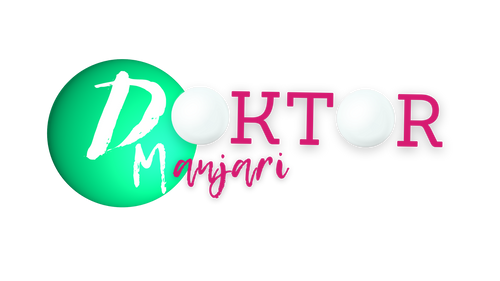🌿 Navigating Anxiety, Depression, and Stress: A Homeopathic Perspective
In today's fast-paced world, mental health challenges like anxiety, depression, and stress-related disorders have become increasingly prevalent. While conventional treatments play a vital role, many individuals seek homeopathy approach to achieve holistic well-being. Homeopathy offers a gentle, individualized method to address these concerns, aiming to restore balance and vitality.
🧠 Understanding the Conditions
Anxiety
Anxiety is characterized by excessive worry, nervousness, or fear that can interfere with daily activities. It encompasses various disorders, including generalized anxiety disorder, panic disorder, and social anxiety disorder.
Common Symptoms:
- Emotional: Persistent worry, restlessness, irritability, and a sense of impending doom.
- Cognitive: Difficulty concentrating, overthinking, and indecisiveness.
- Physical: Muscle tension, rapid heartbeat, shortness of breath, sweating, trembling, and gastrointestinal issues.
Depression
Depression involves a persistent feeling of sadness and loss of interest, affecting how one feels, thinks, and behaves.
Common Symptoms:
- Emotional: Feelings of hopelessness, worthlessness, and helplessness.
- Cognitive: Difficulty concentrating, making decisions, and remembering.
- Physical: Fatigue, changes in appetite or weight, sleep disturbances, and unexplained aches or pains.
Stress-Related Disorders
Stress is the body's response to any demand or challenge. While short-term stress can be beneficial, chronic stress can lead to serious health problems.
Common Symptoms:
- Emotional: Irritability, anxiety, and depression.
- Cognitive: Memory problems, poor judgment, and constant worrying.
- Physical: Headaches, muscle tension, fatigue, and sleep disturbances.
🌱 General and Behavioral Strategies
1. Cognitive Behavioral Therapy (CBT) Techniques
CBT is a widely recognized approach that helps individuals identify and modify negative thought patterns and behaviors. Key techniques include:
- Cognitive Restructuring: Challenging and changing unhelpful beliefs.
- Behavioral Activation: Engaging in activities that improve mood.
- Self-Monitoring: Tracking symptoms and triggers to better understand and manage them.
- Relaxation Techniques: Practices like deep breathing and progressive muscle relaxation to reduce tension.
Source: Verywell Mind
2. Mindfulness and Meditation
Mindfulness practices encourage present-moment awareness and acceptance, which can alleviate symptoms of anxiety and depression. Techniques include:
- Mindfulness-Based Stress Reduction (MBSR): Combines meditation and yoga to manage stress.
- Mindfulness-Based Cognitive Therapy (MBCT): Integrates mindfulness with cognitive therapy principles.
Source: Wikipedia
3. Physical Activity
Regular exercise has been shown to:
- Boost mood-enhancing neurotransmitters.
- Reduce stress hormones.
- Improve sleep quality.
Engaging in activities like walking or yoga can be particularly beneficial.
Source: NCCIH
4. Healthy Lifestyle Choices
Adopting certain habits can support mental health:
- Balanced Diet: Consuming nutrient-rich foods to support brain function.
- Adequate Sleep: Establishing a regular sleep routine to enhance mood and energy levels.
- Limiting Stimulants: Reducing intake of caffeine and alcohol, which can exacerbate symptoms.
Source: Verywell Health
5. Social Support and Connection
Maintaining relationships and seeking support can:
- Provide emotional comfort.
- Offer practical assistance during challenging times.
- Reduce feelings of isolation.
Source: Verywell Health
6. Structured Daily Routine
Establishing a consistent daily schedule can:
- Provide a sense of control and predictability.
- Help in setting and achieving small, manageable goals.
- Enhance motivation and reduce procrastination.
Source: Verywell Health
-
💊 Common Homeopathic Remedies
While homeopathic treatment should always be individualized, certain remedies are frequently considered for these conditions:
- Aconitum Napellus: For sudden panic attacks with intense fear and restlessness.
- Argentum Nitricum: Addresses anticipatory anxiety, especially before events like exams or public speaking.
- Ignatia Amara: Suitable for acute grief, emotional shock, and mood swings.
- Natrum Muriaticum: For individuals who suppress emotions, prefer solitude, and dwell on past grief.
- Kali Phosphoricum: Helps with mental fatigue, burnout, and stress-induced insomnia.
- Arsenicum Album: For those experiencing anxiety about health, perfectionism, and restlessness.
- Aurum Metallicum: Considered in cases of deep depression with feelings of worthlessness and suicidal thoughts.
- Sepia: Often used for hormonal-related mood swings, especially in women experiencing menopause.
Note: The selection of a remedy should be based on a comprehensive evaluation by a qualified homeopathic practitioner.
⚠️ When to Seek Immediate Medical Attention
While homeopathy can be beneficial, certain signs necessitate prompt consultation with a healthcare professional:
- Suicidal thoughts or behaviors: Any indication of self-harm or suicidal ideation requires immediate intervention.
- Severe depression: Inability to perform daily activities, extreme withdrawal, or persistent hopelessness.
- Panic attacks: Frequent, intense episodes that impair functioning.
- Physical symptoms: Chest pain, shortness of breath, or palpitations that could indicate underlying medical conditions.
- Substance abuse: Using alcohol or drugs to cope with emotional distress.
📌 Disclaimer: Homeopathic remedies should be selected based on a comprehensive evaluation by a qualified practitioner. Self-prescription is discouraged, as inappropriate remedies may not address the underlying issues and could delay effective treatment. Additionally, homeopathy is not a substitute for emergency medical care or conventional treatments when necessary.📚 Sources and References
- Mayo Clinic: Anxiety disorders - Symptoms and causes
- Anxiety and Depression Association of America (ADAA): Symptoms
- IMANA: Symptoms, Causes, and Types of Stress-Related Disorders
- Dr. Diana Joy Ostroff: 12 Homeopathic Remedies for Anxiety
- Dr. Homeo: Homeopathy for Stress - Top 5 Natural Homeopathic Remedies
- Homeopathicology: 7 Best Homeopathic Remedies for Depression, Anxiety & Stress
- Homeopathica: Homeopathic Medicines for Stress Treatment
For personalized guidance and support, consider consulting a certified homeopathic practitioner who can tailor a treatment plan to your unique needs.

